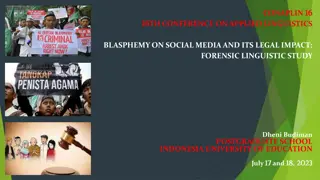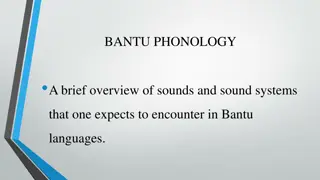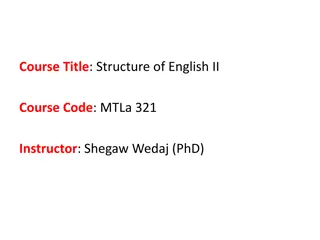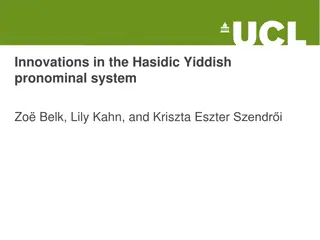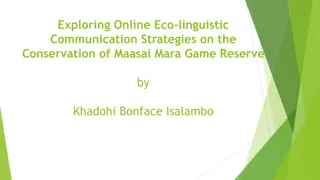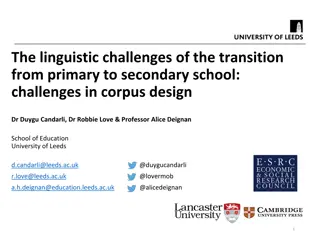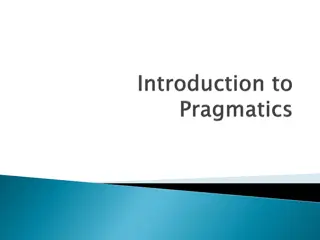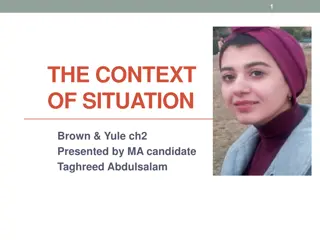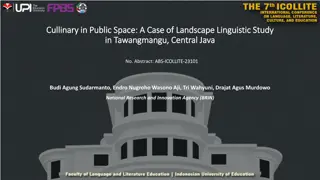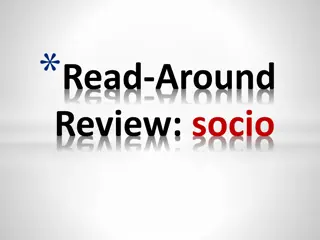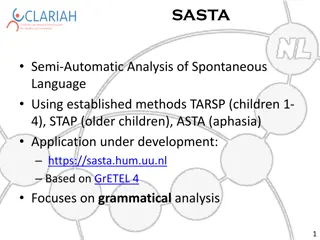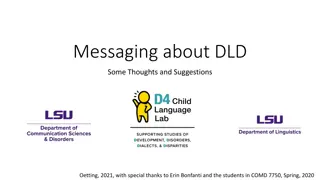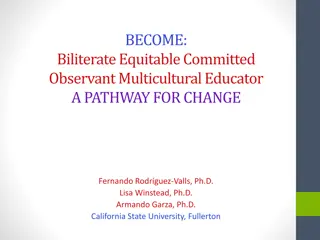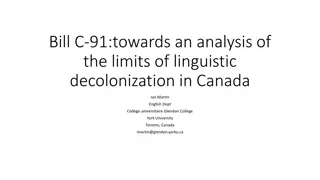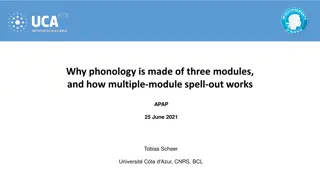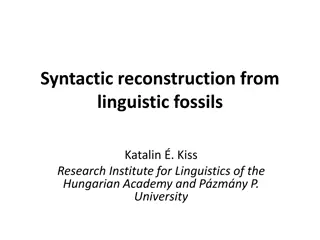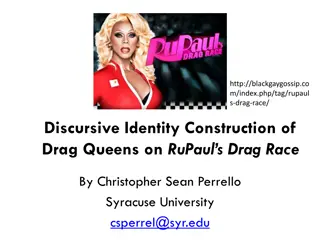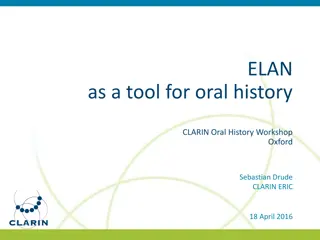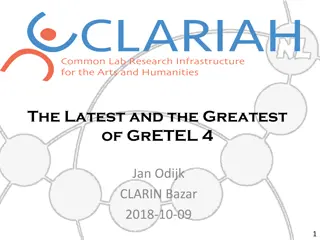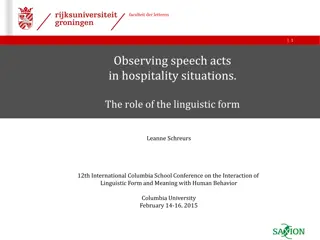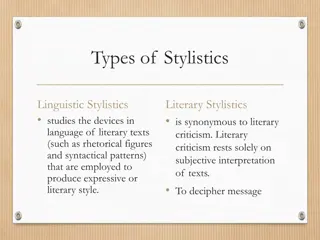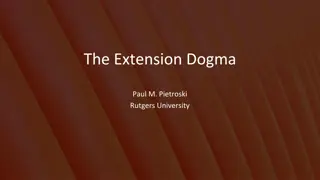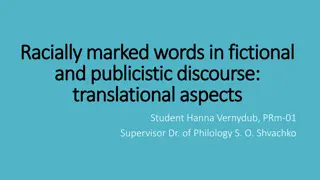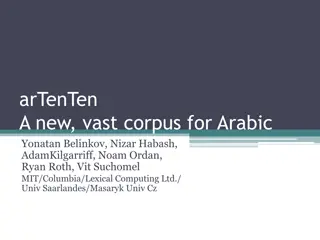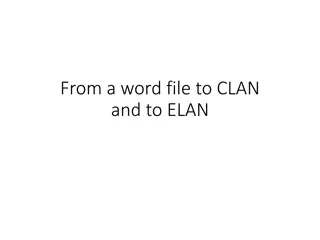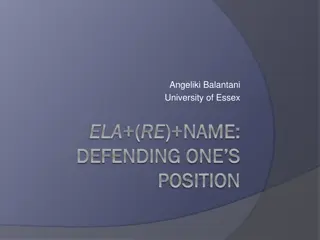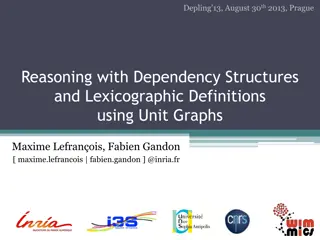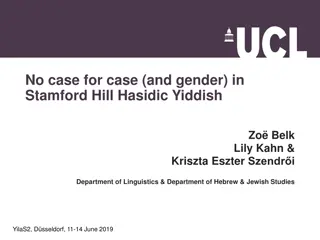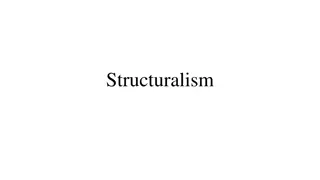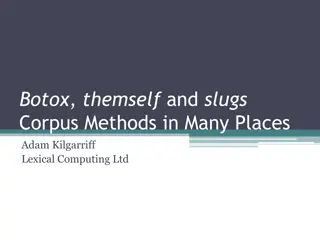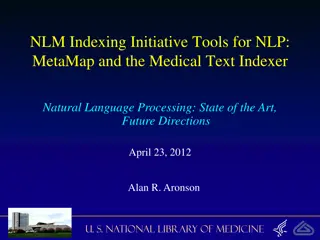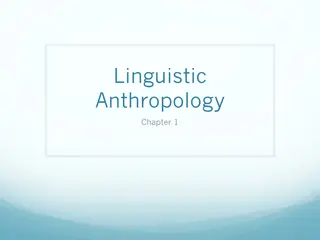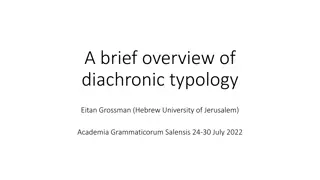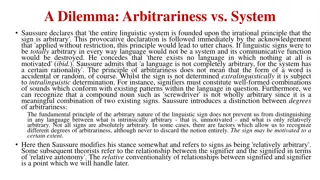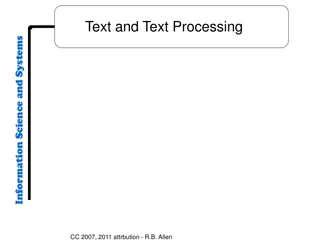Impact of Blasphemy on Social Media: Forensic Linguistic Analysis
Language plays a crucial role in human communication, especially on social media platforms where public speech can have legal consequences. This research delves into the concept of blasphemy on social media and its legal implications, focusing on linguistic forensic study. It explores how language c
7 views • 24 slides
The Significance of Media in Language Learning
Media plays a crucial role in language learning by raising awareness of the ideology behind linguistic structures and providing valuable information on society and culture. Linguists are drawn to media language for research purposes and to understand its impact on language use and attitudes. Media s
12 views • 5 slides
Overview of Stilistik in Bachelor's Studies
Stilistik in a Bachelor's program covers theoretical basics, stylistic concepts, micro and macro stylistics, and key texts in the field. It explores stylistic analysis, linguistic disciplines, communication styles, and the impact of style on various forms of expression including everyday communicati
7 views • 63 slides
Bantu Phonology and Linguistic Classification
Delve into the intriguing world of Bantu phonology and linguistic classification, covering the diverse sounds and phonological processes found in Bantu languages. Discover the rich heritage of over 500 Bantu languages in sub-Saharan Africa, classified into zones and classes, shedding light on the fa
1 views • 38 slides
Structural Linguistics: An Exploration of Language and Signs
Delve into the intricate world of structural linguistics through an in-depth analysis of language components, linguistic signs, and the relationship between language and linguistics. Explore the concepts of syntagmatic vs. paradigmatic relations, linguistic signs as associations of sound and meaning
4 views • 62 slides
Innovations in Hasidic Yiddish Pronominal System
Explore the evolution of pronouns in the Hasidic Yiddish language system, showcasing simplifications and changes over time. The research delves into the linguistic characteristics of Hasidic Yiddish speakers in Stamford Hill, London, highlighting the influences of various Hasidic groups and geograph
1 views • 24 slides
Strategies for Online Eco-Linguistic Communication in Maasai Mara Conservation
Maasai Mara faces threats from human encroachment, prompting conservation efforts. This study explores online eco-linguistic strategies for engaging the public in conservation activities. The importance of language in online communication to achieve ecological harmony is highlighted, emphasizing eco
0 views • 17 slides
Challenges in Transition from Primary to Secondary School: Corpus Design
The linguistic challenges in transitioning from primary to secondary school in England are explored in this project. The focus is on academic school language and the barriers students face in understanding the curriculum, particularly at the start of Key Stage 3. The differing registers of academic
0 views • 28 slides
An Exploration of Linguistic Meaning: Semantics and Pragmatics
Delve into the realm of linguistic meaning through the lenses of semantics and pragmatics. Explore how words and phrases carry literal meanings, while language usage in social contexts creates both literal and nonliteral meanings. Uncover the intricate interplay between semantics, concerned with the
7 views • 70 slides
The Importance of Context in Linguistic Interpretation
Linguists have increasingly recognized the significance of context in interpreting sentences since the 1970s. Contextual features, as discussed by scholars like Firth, Hymes, and Lewis, play a crucial role in understanding utterances within specific social and communicative settings. Co-text and the
1 views • 14 slides
Cultural and Culinary Landscape in Tawangmangu, Central Java: A Linguistic Study
Exploring the culinary and cultural landscape of Tawangmangu, Central Java through a landscape linguistic study, revealing the unique multilingual and multicultural aspects of the region. The research delves into the coexistence of diverse languages and culinary traditions, highlighting the signific
2 views • 9 slides
Unveiling the Societal Connection: A Linguistic Exploration
Embark on a journey uncovering the roots and meanings of words linked to social dynamics. Explore concepts from friendship to mental disorders in this linguistic study of societal interactions.
0 views • 25 slides
SASTA: Semi-Automatic Analysis of Spontaneous Language
Application development for linguistic analysis using established methods like TARSP, STAP, and ASTA. Focuses on grammatical analysis, comparing results to normative figures. Shows promise in linguistic assessment, with potential societal impact.
0 views • 4 slides
Linguistic Microaggressions in Messaging about DLD: Thoughts and Suggestions
Linguistic microaggressions in the discourse surrounding Developmental Language Disorder (DLD) can perpetuate negative stereotypes and harm individuals. This content discusses the concept of linguistic microaggressions, explores the ambiguity in messaging about DLD, and highlights the importance of
3 views • 12 slides
Syntax Through Jabberwocky and Linguistic Examples
Exploring the whimsical "Jabberwocky" poem alongside linguistic concepts like syntactic categories, nouns, verbs, and adjectives. Dive into the world of language structure and analysis with engaging examples.
0 views • 11 slides
Culturally Responsive Biliteracy in Inclusive Education
Culturally responsive biliteracy in inclusive education emphasizes the importance of teaching in two languages, valuing diverse cultural and linguistic identities, and creating a participatory and inclusive classroom environment. Educators play a crucial role in fostering language development and ac
0 views • 12 slides
Limits of Linguistic Decolonization in Canada: An Analysis
This analysis delves into the complexities of linguistic decolonization in Canada, exploring the historical encounters between Indigenous peoples and Europeans. The narrative emphasizes the need to acknowledge both the peaceful coexistence and the devastating impacts of colonialism on Indigenous com
0 views • 59 slides
The Three Modules of Phonology and Multiple-Module Spell-Out Systems
Phonology is structured into three modules - Sonority, Laryngeal, and Place - each with its own vocabulary and skeleton for computation. These modules interact in multiple-module spell-out systems to map linguistic structures onto phonetic realizations. Sonority, involving the audibility of linguist
0 views • 67 slides
Syntactic Reconstruction from Linguistic Fossils in Uralic Languages
Linguistic fossils provide valuable insights for syntactic reconstruction in Uralic languages like Hungarian, Eastern Khanty, and Samoyedic. Through a case study, constraints on topical objects and grammatical systems are examined using linguistic fragments.
0 views • 34 slides
Introduction to Language Technologies at Jožef Stefan International Postgraduate School
This module on Knowledge Technologies at Jožef Stefan International Postgraduate School explores various aspects of Language Technologies, including Computational Linguistics, Natural Language Processing, and Human Language Technologies. The course covers computer processing of natural language, ap
0 views • 27 slides
Decoding Japanese Language Patterns Through Linguistic Analysis
Explore the intricacies of the Japanese language script, including Kanji, Katakana, and Hiragana characters. Delve into a puzzling journey of deciphering meanings, characters, and syllables, drawing comparisons between word lengths and exploring linguistic systems. Join the quest to unravel the chal
0 views • 30 slides
Linguistic Analysis of Drag Queen Identities on RuPaul's Drag Race
This analysis explores how drag queens construct their identities through language on the reality television show RuPaul's Drag Race. The study delves into linguistic patterns, cultural ideologies, and social meanings utilized by drag queens, highlighting the multi-layered and polyphonous nature of
0 views • 17 slides
ELAN as a Tool for Oral History Workshop Summary
ELAN, a tool developed over 15 years at the Max-Planck-Institute for Psycholinguistics, is utilized in various research contexts like language documentation, acquisition studies, gesture studies, and sign language studies. The workshop covers the introduction to ELAN, basic and advanced features, an
0 views • 14 slides
Latest Developments in GrETEL: An Overview of CLARIN, DARIAH, and CLARIAH Projects
GrETEL, a linguistic research tool, showcases the latest advancements in the field of humanities research, particularly within the CLARIN, DARIAH, and CLARIAH projects. It offers functionalities for linguistic research, treebank searching, and user-generated corpus analysis. The tool continues to ev
0 views • 30 slides
Analysis of Speech Acts in Hospitality Situations
Examining the role of linguistic forms in hospitality interactions reveals the significance of language in shaping experiences. Research delves into greetings, invitations, and imperative structures, highlighting how linguistic choices impact the perception of hospitality. The analysis emphasizes th
0 views • 20 slides
Linguistic and Literary Stylistics
Linguistic Stylistics explores devices in language of literary texts to create expressive styles. Literary criticism relies on subjective interpretation, while Stylistic Analysis in linguistics identifies patterns in speech and writing. This content delves into the phonological, graphological, and l
1 views • 17 slides
The Extension Dogma: Exploring Meaning and Extensions in Linguistic Expressions
The Extension Dogma challenges the assumption that linguistic expressions inherently possess meanings. Instead, it posits that expressions have extensions without necessary meanings that determine them. Theories of meaning should focus on the extensions of expressions, while psychological studies of
0 views • 30 slides
Racially Marked Words in Fiction and Journalism
This study delves into the linguistic features of English racial vocabulary in journalistic and literary texts, along with its translation into Ukrainian. It examines the historical development of racial segregation ideas, linguistic status of racially marked vocabulary in English, characteristics o
0 views • 14 slides
Introduction to arTenTen: A New Vast Corpus for Arabic Linguistic Processing
arTenTen is a new corpus for Arabic containing a vast array of text types, rich metadata, and clean linguistic processing capabilities. It offers a significant improvement over existing Arabic corpora, presenting a larger dataset with a variety of linguistic features. The corpus is fully processed,
0 views • 8 slides
Converting Word Files to CLAN and ELAN for Linguistic Analysis
In this text, we see a dialogue transcribed from a word file for language research purposes. The conversation revolves around scheduling appointments for medical examinations. Instructions are provided on reformatting the content and making specific changes to align with research requirements. The p
0 views • 11 slides
Competitiveness and Epistemics in Interaction: A Linguistic Analysis
This linguistic analysis delves into the phenomena of imperative forms, assertion, disagreement, and the distribution of responsibilities in interactions. It explores the context of competitiveness and epistemics, emphasizing the participants' rights in describing and knowing information. The study
0 views • 13 slides
Reasoning with Dependency Structures and Lexicographic Definitions using Unit Graphs
This piece discusses the application of knowledge representation in addressing recurrent needs related to manipulating, querying, reasoning, and sharing information, particularly in the linguistic domain of Meaning-Text Theory. Maxime Lefrançois and Fabien Gandon explore formalisms, such as the the
0 views • 56 slides
Loss of Case and Gender in Hasidic Yiddish of Stamford Hill
Contemporary linguistic study reveals a rapid and pervasive shift in Hasidic Yiddish spoken in Stamford Hill, with a significant loss of case and gender distinctions. Elicited data and comparative analysis suggest a transformation in the mental grammar of Yiddish speakers in this community, challeng
0 views • 36 slides
Structuralism in Linguistics: An Overview
Structuralism emerged as a dominant approach in linguistic studies from the 1920s to the 1960s, led by figures like Ferdinand de Saussure. This philosophical perspective focused on the study of language as a stable system of signs, emphasizing the interrelation of mental representations of sounds an
1 views • 28 slides
Linguistic Features in Trademarks and Branding
Explore the nuances of linguistic features in trademarks and branding through topics such as generic vs. name-like words, trade mark infringement cases, capitalization norms, and the significance of corpus analysis in understanding language usage in branding. Discover how linguistic expertise plays
0 views • 22 slides
MetaMap and Medical Text Indexer for NLP: Advancements in Biomedical Concept Identification
Cutting-edge tools like MetaMap and the Medical Text Indexer (MTI) are revolutionizing natural language processing in the field of medicine. These tools provide advanced linguistic analysis, word sense disambiguation, and efficient indexing of medical texts. MetaMap excels in named-entity recognitio
0 views • 27 slides
Linguistic Anthropology and Anthropology: A Comprehensive Overview
Delve into the realm of linguistic anthropology and anthropology to explore the study of humans, culture, language, biology, artifacts, and more. Discover the four fields of anthropology, the holistic approach, and the importance of cultural relativism while avoiding ethnocentrism. Learn how linguis
0 views • 25 slides
Diachronic Typology and Linguistic Diversity
Delve into the fascinating realm of diachronic typology and linguistic properties across languages in time and space. Uncover the distribution of linguistic features, the past tense in various languages, and the underlying constraints shaping language structures. Discover the intricate interactions
0 views • 99 slides
The Principle of Arbitrariness in Linguistic Signs: Saussure's Insight
Saussure's declaration on the arbitrariness of linguistic signs is thought-provoking, emphasizing that while signs are arbitrary, complete arbitrariness would lead to chaos. He distinguishes between degrees of arbitrariness and acknowledges that signs are not entirely arbitrary, being subject to lin
0 views • 9 slides
Text and Text Processing CC 2007, 2011 Attribution - R.B. Allen
Fonts, OCR, Reading, Authorship, Text Processing, Information Extraction, Document Retrieval, Vector Model - various aspects of text processing and analysis are explored in this content, discussing topics such as readability, character recognition, linguistic knowledge, author identification, spell-
0 views • 22 slides
